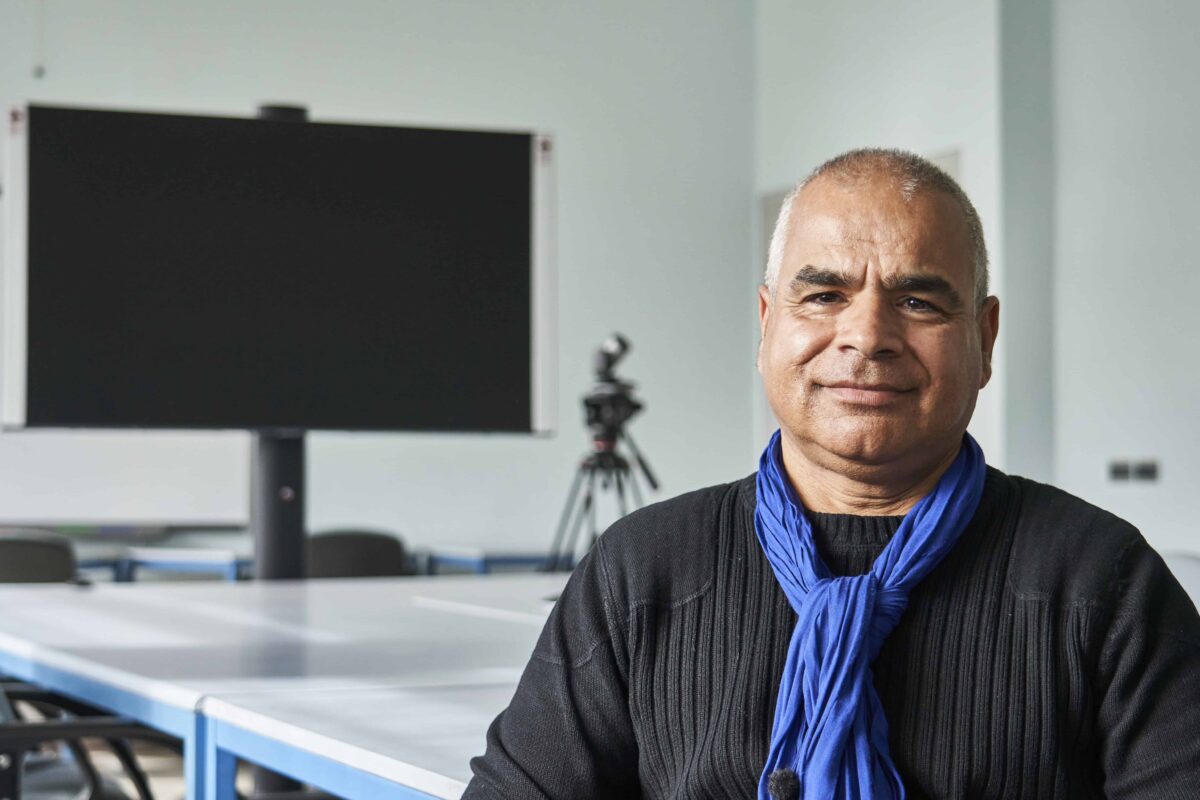Educators worldwide have spent two years creatively tending to their students during the COVID-19 pandemic. Whether by teaching over Zoom or broadcasting lessons over the radio, they have not given up on education.
USAID’s Reading for Success – National Program for Reading (NPR) in Morocco has put this same commitment and energy into training teachers despite pandemic hurdles.
The Moroccan Ministry of Education, Preschools and Sports and the Reading for Success programs spent seven years creating a revised Arabic language curriculum to improve literacy in primary school. However, the curriculum’s full potential can only be reached after it is in teachers’ hands and being deftly applied in classrooms.
Fortunately, the USAID Morocco program had already planned to integrate digital solutions and was able to expand them when the pandemic made in-person teacher training impossible.
“As the proverb goes, ‘in every curse there is a blessing’,” says Abdelaziz Abdelhadi,
Director of Zouhair Ibn Abi Salma School in El Hajeb. “The COVID-19 pandemic pushed us to introduce more distance training opportunities.”
The primary tool the program relied on was massive open online courses, also known as MOOCs, which offer an online way to provide high-quality, flexible coursework to an unlimited number of teachers.
It introduces the revised Arabic language curriculum through training videos, class simulations and other useful tools to educators across Morocco.

CNIPE e-learning center Rabat, Morocco.
“Teachers learn the theoretical concepts, and at the same time they have the opportunity to see how the skill is being taught to students,” says Abdellatif Fergoug, Head of the Ministry of Education’s E-learning Project. “We provided them with both theoretical and practical tools to learn.”
Beyond serving as a pandemic solution, MOOCs have made it easier for teachers to avail of professional development.
“Remote training is flexible,” says Mohamed Housni, Head of Division at the National Center for Educational Innovations and Experimentation (CNIPE) e-learning center, an institution in Rabat that collaborated on creating the MOOCs. “You can be at home, in a café or at work and access the platform to participate in these trainings at your own convenience.”
This flexibility is critical for female teachers, who have shared that they sometimes have difficulty attending in-person trainings due to family responsibilities or their husbands not wanting them to travel alone.
Khadija Chahid has been an educator for eight years, but the MOOCs were the first curriculum training she received since graduating from college.
“This was my first time teaching grade two, and the Arabic language curriculum completely changed,” says Chahid. “The MOOC helped me learn new concepts to better teach reading. If I had tried to learn this on my own, I wouldn’t have been able to understand as much as I do now.”
This is thanks to thoughtful preparation by the National Program for Reading, the Ministry, CNIPE and the Center of Learning Technologies at Al Akhawayn University.
These collaborators drew on neuroscience principles — attention, active engagement and anchoring — to create an engaging training for teachers and produce corresponding videos. The team found creative pandemic workarounds to continue producing remotely, including training people on how to record videos at home.
While MOOCs have proven to be powerful tools, there is still a desire for a blended approach that optimizes flexibility with the magic that happens when learners are in a room together.
“Ever since we began pursuing remote training, we have been saying that our role is not to compensate for in-person training,” says Housni. “Our work is complementary.”
The MOOCs trained 339 teachers from pilot schools in four regions in Morocco from September 2021 to January 2022. The platform that hosts the MOOCs will eventually be opened nationwide to train thousands of teachers.
“These courses can help us train more than 40,000 teachers,” says the Ministry’s Director of Curricula, Fouad Chafiqi, Ph.D. “Today these 40,000 teachers are learning about the Arabic language curriculum but maybe in the future it will be other subjects and we can foster a culture of lifelong learning.”